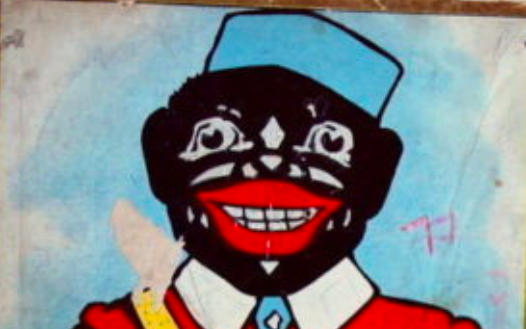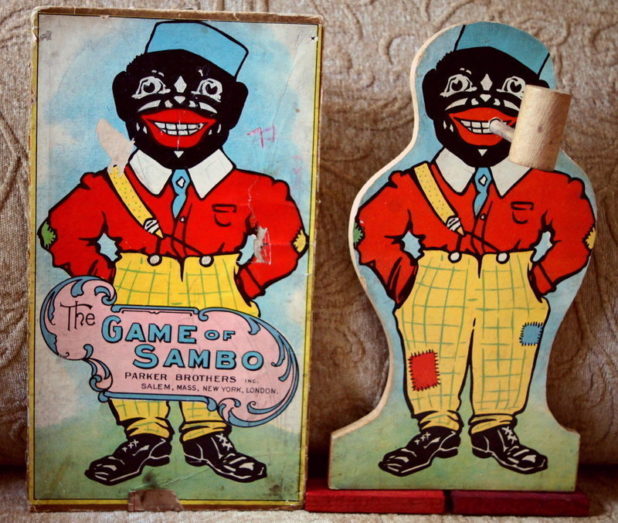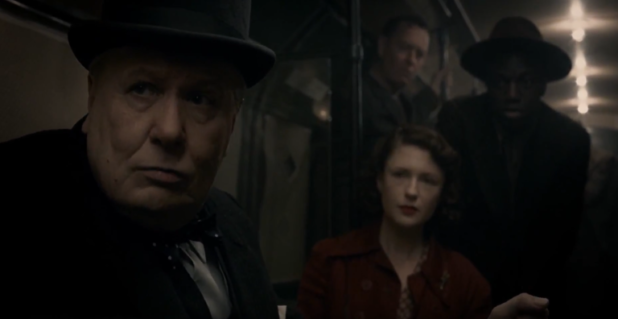Diversity Macht Frei
May 26, 2018
Last night I watched “The Darkest Hour”.
I’ve been a despiser of Churchill since even before I was JWoke and it’s certainly interesting that in both this film and, even more, last year’s “Churchill”, the great man is now being portrayed (accurately) as a kind of doddering, drink-besotted buffoon, lapsing into senility, with only a few lucid moments here and there. (See some of the books in my Books list if you’re interested in exploring critical perspectives on Churchill.)
The film hinges on the debate over whether Britain should have sought some accommodation with Hitler or continued to fight him. It’s worth noting that Hitler displayed no animosity to Britain and had offered to guarantee its safety and the integrity of the British empire, even to the extent of deploying German forces to secure it if necessary. Hitler wanted a free hand to attack the Soviet Union, which he saw as a mortal menace to our civilisation. That he was basically right about this is evidenced by the fact that we spent decades after the war locked in a struggle with it, here and there brushing up against the genuine possibility of global destruction.
But no such nuances are apparent in this movie rendering of the debate. Here the “appeasers” are cowards, dastards and schemers. They put pressure on Churchill and manage to plant doubt even in the great man’s mind.
The “train scene” (shown in the video) appears to be the key moment when Churchill resolves to carry on with the struggle. He goes on to an underground train for the first time and asks people what they think about the war, whether they still have the will to fight on.
You might think a WW2 movie would at least be free of race-mixing propaganda. But no. They managed to find a way to get it in, even here. On the train is a negro, apparently in an intimate relationship with a white woman from the way she nudges and looks at him. And this is no ordinary negro. His super-dark complexion, rubber lips and thick nose make him an almost caricature Sambo figure.
There is an interesting moment when someone observes to Churchill about the war, “Some people say it’s a lost cause.” “Lost causes are the only ones worth fighting for,” he retorts. The negro and the white woman then exchange knowing looks and nod their heads, as if they had had some special experience in the matter. What is implied here? The terrible struggle against “prejudice” the girl must have faced as the concubine of a negro? Implying an equivalence between Britain’s patriotic wartime resistance and the desire of a white woman to mate with an African?
The negro is also super-patriotic. “They’ll never take Picadilly!” he exclaims.
Churchill ends by quoting one of the Lays of Ancient Rome by Thomas Babington Macaulay. The negro helps him by filling in the last lines. Now Macaulay is a very minor English poet. Even people well versed in English literature might well have only a passing acquaintance with his work. But this super-negro knows it off by heart. He has plumbed the depths of England’s literature, as well as its women. Since the words are a celebration of ancestral belonging, they are, of course, particularly ironic coming from an African in wartime England.
“Then out spake brave Horatius,
The Captain of the Gate:
To every man upon this earth
Death cometh soon or late.
And how can man die better
Than facing fearful odds,
For the ashes of his fathers,
And the temples of his gods”
Neither the director nor the writer of this film appear to be Jewish but the director Joe Wright is married to an Indian woman, Anoushka Shankar (daughter of Ravi Shankar). He clearly has a personal stake in promoting the race-mixing ideal.






